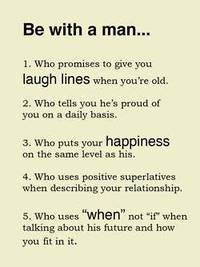REAL-TIME RELATIONSHIPS
THE LOGIC OF LOVE
Some of the greatest movies of the past ten years explored what it is
like to live in an illusion. “The Sixth Sense,” “Fight Club” – and,
greatest of all, “The Matrix.”
Let’s start with a spoiler or two, shall we?
In “The Matrix,” a young man is awakened from a computer-generated
imaginary world to find that he is enslaved by robots who are paralyzing
him with the illusion of life in order to harvest his electrical energy.
This is a wonderful metaphor on many levels, and tells us an enormous
amount about our “relationship” with truth and reality.
In the movie, the robots that were originally invented to serve mankind
end up ruling mankind and spinning an illusory “reality” which keeps
their former masters entombed in the mere appearance of a life.
My take on this metaphor is that it is really describing propaganda.
For instance, the government is an institution that was originally
designed to serve citizens – “government by and for the people.”
However, as we have seen countless times, what we create to serve us
ends up ruling us.
Governments that were supposedly created to keep our property safe
from thieves now steal upwards of 50% of our income under the guise of
“taxation.”
Governments were supposedly created to give us participation in the
“democratic process” – yet if we do not agree with whatever those in the
government decree, we are threatened with violence and imprisonment.
Through the endless infliction of pro-state propaganda in government
schools, we grow up believing in mad illusions such as “countries,”
“virtuous violence,” “participative democracy,” “voluntary taxation,”
“moral murder” in the form of “armies” and so on.
In our churches, we are taught as children to believe that deranged fairy
tales represent objective and absolute truth. We are expected to believe
with all seriousness that we are evil because a woman made from the rib
of a man listened to a talking snake. We are asked to swallow the
proposition that an invisible being who drowned almost everyone in the
world is the very paragon of virtue.
In our families, we are taught that our relations are virtuous and have
value simply because they share some of our DNA – while at the same
time being told that racism is evil.
In our relationships, we are taught that “love” can be willed, that others
owe us affection, obedience and respect, and that bullying is the same as
being assertive.
Standing at the border of a country, we see that the land does not change
color, as indicated on maps. Gravity does not change as we step across
this imaginary line; reason, physics and morality remain utterly
constant.
We believe – or rather, the belief is inflicted upon us – that we owe
allegiance to imaginary lines, imaginary gods, and the imaginary virtue
of our tribe.
Awakening from these mad dreams is a disorienting, frightening and
wonderful experience.
Philosophy is the tool that we use to undo our illusions.
Philosophy reveals to us the simple truths that are self-evident to
toddlers, yearned for by teenagers – and attacked and dismissed by most
adults.
Philosophy is in its essence about relationships – the relationship
between a statement and its truth-value; the relationship between logic
and empiricism, “self” and “other,” choice and virtue, integrity and
happiness – the mind and reality.
However, most importantly, philosophy is about our relationships with
each other.
Philosophy – like all knowledge – is a communal endeavor, since it
cannot exist without the collective and accumulated values of language,
prior thought – and our shared capacity to process sensory reality.
12
A man born alone on a desert island cannot practice medicine, or science
– or philosophy.
Philosophy reveals the truth to us about our relations with each other,
with reality, and with truth itself.
If we are free, philosophy will strengthen our wings.
If we are enslaved, philosophy will weaken our chains.
Source StumbleUpon.
Source StumbleUpon.



Comments